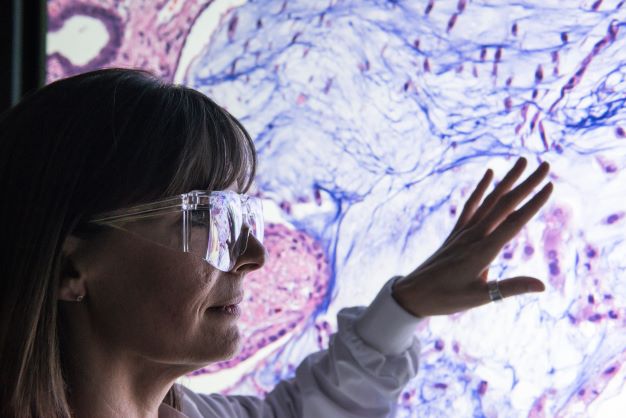
Breast cancer is one of the greatest global public health challenges. It is the number one and the number two cause of female cancer deaths in 95% of the world, with World Health Organisation data showing 2.3 million women were diagnosed with breast cancer and more than 685,000 died from the disease in 2020.
In Australia, breast cancer is the most diagnosed cancer in women, with more than 20,000 new cases each year. Of these, approximately one thousand have advanced or late-stage cancers. Sadly, for these women, the first time they hear they have breast cancer, it could already be too late.
For AstraZeneca’s Oncology Business Unit Director, Heather Cahill, it is a challenge she is determined to beat.
Sitting down with London Agency as part of Breast Cancer Awareness Month, Ms Cahill did not shy away from her ambition.
As a company, AstraZeneca is putting their words into action in Australia, especially in terms of clinical trials.
 |
“AstraZeneca is one of the largest investors in clinical trials in Australia,” Ms Cahill said, “with 96 interventional oncology and haematology trials at 79 sites across the country.”
“In breast cancer we have 15 studies ongoing with seven drug candidates across 40 sites in Australia. A huge impact.” “I mean, why not tackle the number one or two cause of female cancer death?” Ms Cahill said, “That’s why it’s so important.” “This significant investment in research and development in Australia includes AstraZeneca funded trials as well as externally sponsored research.” |
“Our aim is to establish a strong research footprint at key sites across the country so we can bring innovative new medicine development to Australia and engage the local cancer community in this development. I believe we are leading in this respect.”
This pipeline of new medications, alongside new treatments, is a prospect which excites Ms Cahill for the future of not just breast cancer care, but oncology in general in Australia.
“I think the next generation of treatments is really interesting,” she said. “What differentiates AstraZeneca’s pipeline is the concentration of research around six oncology disease areas, and one of these is breast cancer.”
“We have multiple medicines and combinations that could potentially transform the standard of care for many breast cancer patients. And we’re guided by our ambition.
“Our mission is to push the boundaries of science and create sustainable change for breast cancer patients. We estimate that our efforts will lead to one in three patients in the future being treated with an AstraZeneca medicine.”
“Through many novel combinations of targeted therapies and combinations of new immune agents we will be able to directly kill cancer cells, attack signalling pathways, overcome resistance and boost the body’s own immune system, enabling us to tackle many sub-types of breast cancer across all stages of disease. And by doing all of that, we will move closer to our ambition of eliminating cancer and breast cancer as a cause of death.”
PART TWO OF LONDON AGENCY’S CONVERSATION WITH HEATHER CAHILL WILL BE RELEASED NEXT WEEK. TO STAY UP TO DATE, VISIT LONDONAGENCY.COM.AU AND SUBSCRIBE FOR UPDATES.